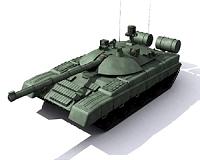 |
Tel Aviv, Israel (UPI) Jul 6, 2010 Israel is seeking to prevent the United States from selling up to 72 advanced-model Boeing F-15 strike jets to Saudi Arabia, despite what the Israeli ambassador to Washington recently described as a "tectonic rift" between the longtime allies. The liberal Haaretz daily reports that the Israeli leadership also wants to block a Saudi program to upgrade the 154 F-15s the kingdom already has in service to bolster its military capabilities against regional rival Iran. The Israelis argue that the sale of advanced F-15s, worth an estimated $10 billion, and the upgrade program that will give the Saudis' current fleet vastly improved firepower and combat capabilities would erode the Jewish state's qualitative edge that successive U.S. governments have pledged to maintain. Haaretz reported Sunday that "Israel has expressed several reservations to the Americans over the last month" on this issue. Israeli Defense Minister Ehud Barak, whose standing in Washington is high these days because he's seen as a counterweight to hawkish Prime Minister Binyamin Netanyahu, raised it with U.S. Defense Secretary Robert Gates and national security adviser Jim Jones in the U.S. capital in June. Senior Israeli defense officials also pressed U.S. Undersecretary of Defense for Policy Michele Flournoy when she visited Tel Aviv last week. The thorny issue was also expected to be high on Netanyahu's agenda when he met U.S. President Barack Obama in the White House Tuesday. King Abdallah of Saudi Arabia raised the F-15 issue when he met with Obama in Washington last week. Diplomatic sources say the monarch had hoped to secure an agreement in principle on the proposed F-15 purchase. But that doesn't seem to have materialized, no doubt largely because of Israeli objections since the Americans have made it clear in recent months that they want to build up the military capabilities of the Saudis and their Arab partners in the Persian Gulf who are the most vulnerable to Iranian threats. The focus is primarily on their missile defenses and Saudi and United Arab Emirates air power. Indeed, the Emirates expects to finalize a $7 billion contract to buy Lockheed Martin's high-altitude missile defense system in the next few months. If that deal goes through, it would mark the first foreign sale of the Terminal High Altitude Area Defense system, underlining Washington's commitment to establish a gulf-wide shield against Iranian ballistic missiles. The U.S. drive to bolster regional forces to confront Iran's growing conventional arsenal, in particular its strategic ballistic missile force, has involved military sales totaling $25 billion over the last two years. That's been a big boost for the U.S. defense industry despite the rift between Israel and the United States over Netanyahu's refusal to halt all settlement activity in the West Bank as demanded by Obama in his effort to revive the Mideast peace process. The extent of the dispute was evidenced by Israeli Ambassador Michael Oren's admission to diplomats in Jerusalem last month of the "tectonic rift" that now exists between Israel and its longtime benefactor. He also said that U.S. relations with Israel have moved from the historic and ideological underpinnings of earlier administrations to a state of cold calculation. In April, veteran Middle East analyst Anthony Cordesman of the Washington Center for Security and International Studies noted that the United States won't abandon Israel since it has a moral commitment to ensure its survival. But he stressed, "At the same time, the depth of America's moral commitment does not justify or excuse actions by an Israeli government that unnecessarily make Israel a strategic liability when it should remain an asset." It isn't clear to what extent the Obama administration is viewing Israel's objections to Saudi Arabia's efforts to acquire advanced F-15s through such a prism. But there are other factors that are likely to be taken into consideration. One is that some of the Arab states in the gulf, such as Qatar, Bahrain and Kuwait, host major U.S. bases, which makes them more of a target for Iran and also puts thousands of American personnel at risk. This danger is likely to carry substantial weight in U.S. deliberations of Israel's efforts to block the sale of advanced U.S. weapons systems to Arab states, who although they share a common hostility toward Iran, remain potential adversaries in Israeli eyes.
Share This Article With Planet Earth
Related Links The Military Industrial Complex at SpaceWar.com Learn about the Superpowers of the 21st Century at SpaceWar.com
 DefenseRussia Exports Over Five Billion Dollars In Arms In First Half Of 2010
DefenseRussia Exports Over Five Billion Dollars In Arms In First Half Of 2010Zhukovsky, Russia (RIA Novosti) Jul 06, 2010 Russia has exported $5.3 billion worth of weapons-related production in the first six months of 2010, the head of the Federal Service for Military-Technical Cooperation (FSMTC) said on Wednesday. "With a plan for $9.5 billion, we have delivered $5.3 billion in [weapons-related] production in the first six months [of 2010], which constitutes 56% of the plan," Mikhail Dmitriyev told the Engi ... read more |
|
| The content herein, unless otherwise known to be public domain, are Copyright 1995-2010 - SpaceDaily. AFP and UPI Wire Stories are copyright Agence France-Presse and United Press International. ESA Portal Reports are copyright European Space Agency. All NASA sourced material is public domain. Additional copyrights may apply in whole or part to other bona fide parties. Advertising does not imply endorsement,agreement or approval of any opinions, statements or information provided by SpaceDaily on any Web page published or hosted by SpaceDaily. Privacy Statement |